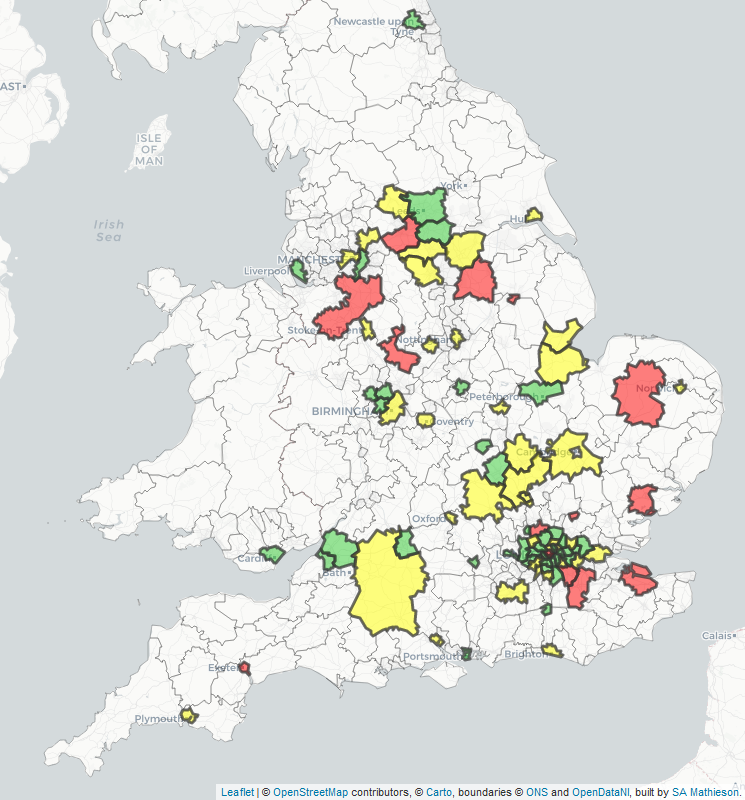1) The Welsh in England like to be near Wales
On Census day, 21 March 2021, there were 478,700 Welsh-born people in England, making up 0.8% of the population, with some in every lower-tier local authority area. But the highest proportions were found in the Forest of Dean district of Gloucestershire (6.4%), Shropshire (5.8%), Herefordshire (5.3%) and Cheshire West (4.1%) – which are all also the four lower-tier local authority areas of England that border Wales. The pattern is clear from the map, although this uses upper-tier local authority areas, with 2.8% of the population of Gloucestershire born in Wales.
Continue reading “Six things Census 2021 dataset TS012 told me about England and Wales”

